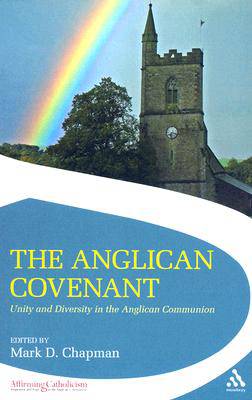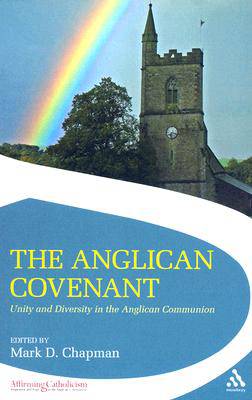
Je cadeautjes zeker op tijd in huis hebben voor de feestdagen? Kom langs in onze winkels en vind het perfecte geschenk!
- Afhalen na 1 uur in een winkel met voorraad
- Gratis thuislevering in België vanaf € 30
- Ruim aanbod met 7 miljoen producten
Je cadeautjes zeker op tijd in huis hebben voor de feestdagen? Kom langs in onze winkels en vind het perfecte geschenk!
- Afhalen na 1 uur in een winkel met voorraad
- Gratis thuislevering in België vanaf € 30
- Ruim aanbod met 7 miljoen producten
Zoeken
The Anglican Covenant
Unity and Diversity in the Anglican Communion
€ 58,45
+ 116 punten
Omschrijving
This book is a collection of essays by leading theologians and church leaders on the implications of the proposed Anglican Covenant, which has been offered as a solution to the recent crises facing worldwide Anglicanism. At the Anglican Primates' meeting in February 2007 a draft Covenant was commended for study by the constituent churches of the Anglican Communion. This book presents a sober and dispassionate discussion of the theology and politics behind the Covenant. The writers represent a number of different theological traditions and disciplines within and beyond Anglicanism. What unites them is a desire to understand other opinions and to listen to different views. The contributors include theological educators, church historians, ethicists, biblical scholars, and canonists from different parts of the Anglican Communion and from ecumenical partners. While the book aims to be dispassionate and to stand apart from the rhetoric of ecclesiastical parties, it also offers original and thought-provoking discussions based on detailed and thorough scholarship.
In his introduction Mark Chapman discusses the development of the authority structures of the Anglican Communion, as well as the recent history of conflict between the member churches, particularly over the issue of homosexuality. Ecumenical reflections on conciliarity are offered by Paul McPartlan, a leading Roman Catholic scholar, and Kenneth Wilson, a prominent Methodist. John Barton, Professor of Old Testament at Oxford University, contributes a chapter on the concept of Covenant in the Old Testament tradition. This book provides a valuable resource for global Anglicanism as it begins to develop the final version of the Covenant over the coming years. It will be crucial reading for all those involved in preparing for the Lambeth Conference of 2008.
In his introduction Mark Chapman discusses the development of the authority structures of the Anglican Communion, as well as the recent history of conflict between the member churches, particularly over the issue of homosexuality. Ecumenical reflections on conciliarity are offered by Paul McPartlan, a leading Roman Catholic scholar, and Kenneth Wilson, a prominent Methodist. John Barton, Professor of Old Testament at Oxford University, contributes a chapter on the concept of Covenant in the Old Testament tradition. This book provides a valuable resource for global Anglicanism as it begins to develop the final version of the Covenant over the coming years. It will be crucial reading for all those involved in preparing for the Lambeth Conference of 2008.
Specificaties
Betrokkenen
- Uitgeverij:
Inhoud
- Aantal bladzijden:
- 224
- Taal:
- Engels
- Reeks:
Eigenschappen
- Productcode (EAN):
- 9780567032539
- Verschijningsdatum:
- 25/03/2008
- Uitvoering:
- Paperback
- Formaat:
- Trade paperback (VS)
- Afmetingen:
- 138 mm x 215 mm
- Gewicht:
- 285 g

Alleen bij Standaard Boekhandel
+ 116 punten op je klantenkaart van Standaard Boekhandel
Beoordelingen
We publiceren alleen reviews die voldoen aan de voorwaarden voor reviews. Bekijk onze voorwaarden voor reviews.








